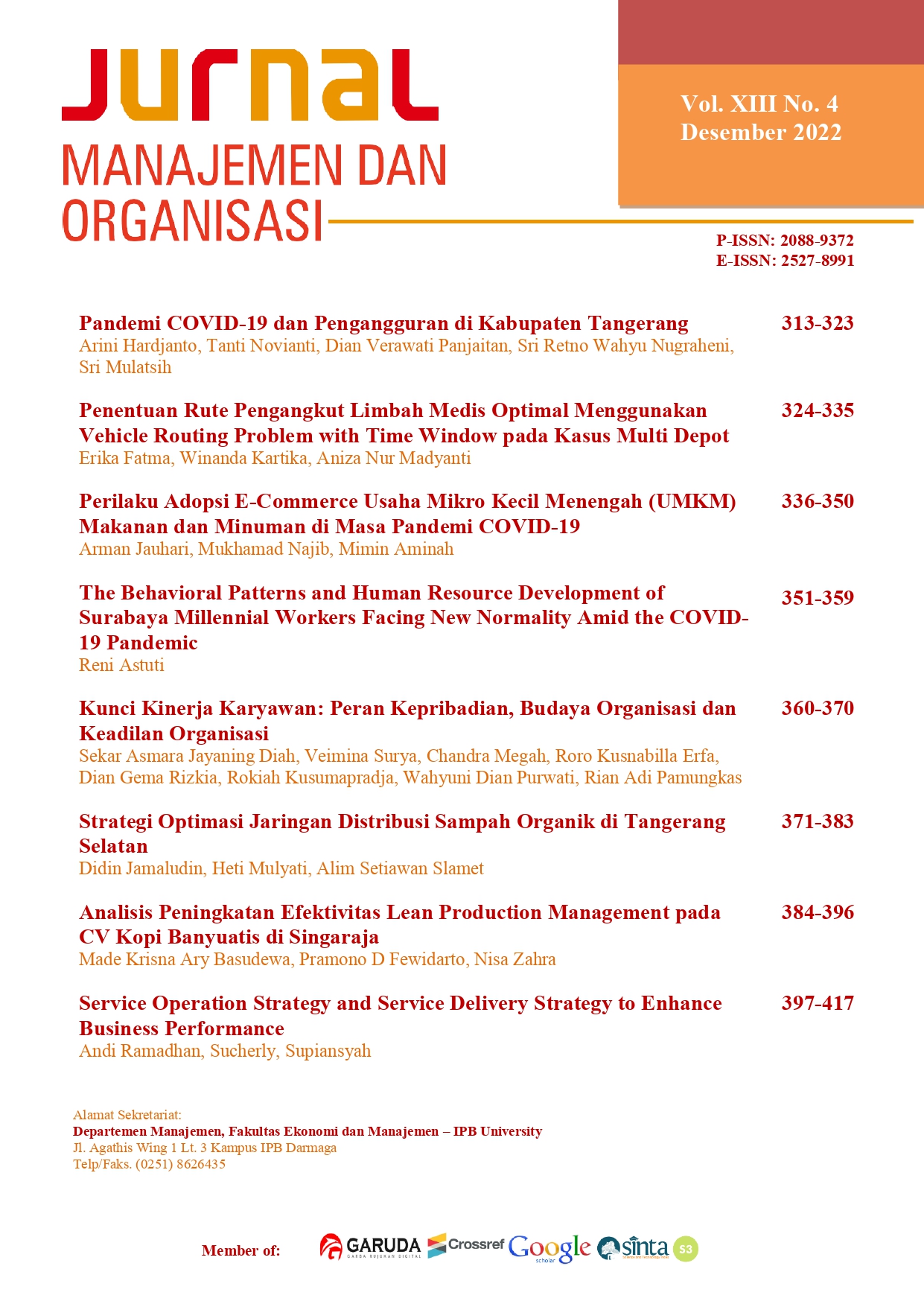The Behavioral Patterns and Human Resource Development of Surabaya Millennial Workers Facing New Normality Amid the COVID-19 Pandemic
Abstract
The young workforce dominates Surabaya, the millennial group or generation Z. New normal during the COVID-19 pandemic, causing young workers to work from home (WFH). This study aims to formulate policies on how stakeholders can formulate policies that follow the needs of workers and the development of human resources (HR). The method used is quantitative with a purposive sampling technique. The instrument used is the FWOQ scale, a 6-level Likert scale with 12 items given to 153 millennial worker participants. This research found that the millennial who did WFH due to the pandemic tended to experience difficulties. It is different from millennial workers who have been WFH since before the pandemic, which tends to be easier to handle. The barriers felt by the two groups tend to be the same, such as barriers-others, barriers-costs, and barriers-commitment. The originality of the research puts more emphasis on millennial workers who have the character of getting bored quickly, dynamically, and always wanting to be updated but face WFH. Research has also never been carried out in a more specific area, Surabaya.


.jpg)




